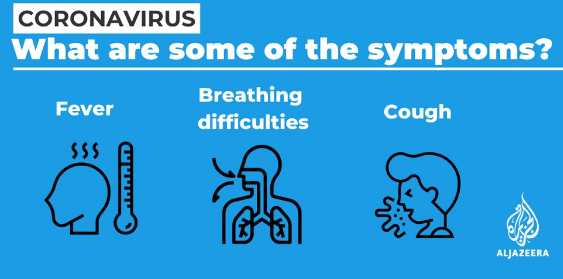
The new coronavirus is a real reminder of the risk of infectious diseases, but there is an encouraging development. In a few weeks after the virus has been reported, scientists in China have isolated data and quickly sequenced viruses, shared with the international research community, and accelerated global efforts to develop diagnoses, vaccines and treatments.
The world started because the Chinese scientific community has a strong disease surveillance network to detect the types of influenza that have emerged and have the SARS experience.
This is not the case with the Ebola epidemic that devastated West Africa from 2014 to 2016. The world does not see. At the time the virus was discovered, it had been circulating for months. The same applies to the Zika virus, which we believe is spreading in South America more than a year before it was discovered.
The virus has a "clock" that allows us to molecular estimate when humans first jumped or entered carbon dating from the release of the human genetic population. Based on the initial limited genetic diversity seen in the 2019-nCoV genome, we believe scientists in China have discovered this outbreak within a few weeks from the start.
Detection speed was unprecedented and decisive. Time is extremely important in responding to an outbreak. For Ebola and SARS, much time has passed: the virus is mutating and potentially more dangerous.
"See Also :unlocker portable
The last three outbreaks demonstrate the power of the genome to guide our response to this emerging threat. Current genome technology can tell us the origin, spread, and biology of viruses. It also allows job diagnoses worldwide in a few days.
But we need to use these genetic tools and greatly improve our capabilities. China is achieving almost real-time response because it has existing infrastructure; most countries in the southern world are disproportionately affected by the virus outbreak, no. Most countries and most U.S. states still don't have the ability to spot 2019-nCoV right away.
2019 - We see the epidemic not only stresses the need to increase our investments in genomics, diagnostics and information technology, but also the importance of integrating them into our routine health practices.
We are still far from taking control of the 2019-nCoV, and the painful victims may still be on top. As the world looks at 2019-nCoV, about 100 or more outbreaks are reported each year, and Ebola continues to destroy the Democratic Republic of the Congo.
Let's hope we all learn from this experience to build systems all over the world that we need to respond to quickly, whatever the threat.
Sabeti, TIME 100 award-winning, is a member of the Massachusetts Institute of Technology's Broad Institute and Harvard University